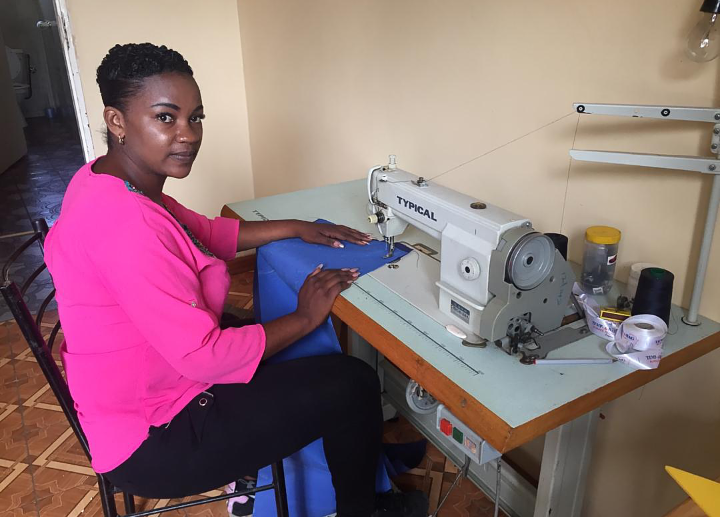
Vongai Mabvirakare , founder of Nadia Hope Trust, Zimbabwe is not only reducing the number of drug addicts in her country, she is also fighting deforestation. She started working as a volunteer in hospitals in Zimbabwe and Tanzania 2006. Vongai developed the passion of helping the needy since childhood, especially women because she experienced some challenges her mother faced after the death of her father. She currently works with youth reformed from drug abuse and also women who mostly participate in plastic recycling. They collect plastic waste on the streets and the foundation pays them on commission basis. One of Nadia Hope Trust’s innovation projects is renewable energy which falls under plastic recycling. The foundation uses plastic waste to make temperature retention boxes and bags that can be used for warming or cooling food without electricity. Her 10 years plan is to take the innovation to other Africa countries and rest of the globe.
Vongai in this exclusive interview with Green Savannah Diplomatic Cable speaks about how Nadia Hope Trust is addressing environmental and social challenges in Zimbabwe
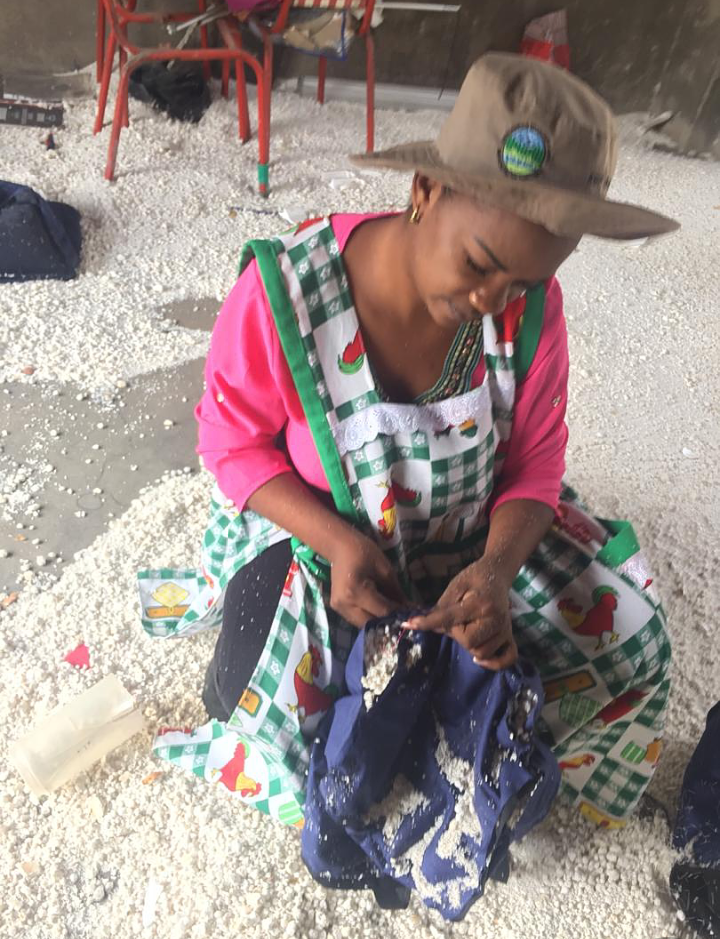
Excerpts:
Why did you set up Nadia Hope Trust?
I set up Nadia hope trust because I was raised by a widow mother, so I saw the challenges she faced in raising us, therefore my aim is family empowerment and poverty eradication
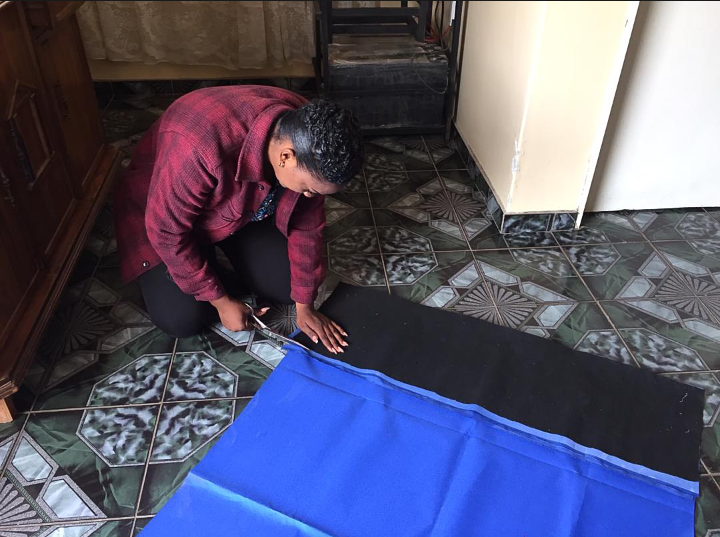
Would you want to tell us the major environmental issues in Zimbabwe?
The major environmental issue is deforestation, plastic waste and pollution. Due to power cuts, people are using energy sources that are harmful to the environment, but our innovation is helping in solving air pollution and deforestation issues as well as reducing plastic waste on the streets
What makes the NGO different from others in Zimbabwe?
Most NGOs in Zimbabwe are helping with food, medication things that are consumable whilst ours is offering knowledge impartation, skills, and empowerment as a way of eradicating poverty in communities. We are teaching people how to fish and not giving fish. The goal is to empower them to be self-sustained.
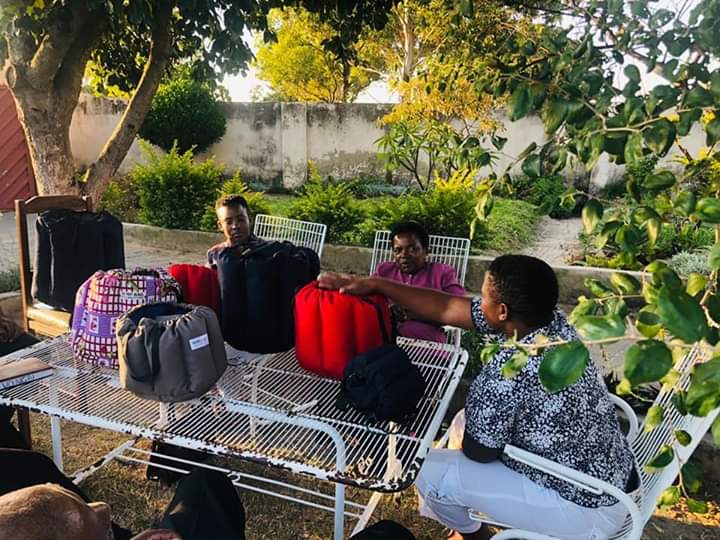
Has Nadia Hope Trust made any meaningful impact on the environment?
Our innovation has brought a very meaningful impact to the environment because we are recycling plastic waste in a way that it will never go back to the streets again .This innovation reduces deforestation and air pollution by 80% and it’s a form of sustainable renewable energy which is in line with SDG goal number 7. One of our projects is renewable energy which falls under plastic recycling where we use plastic waste to make temperature retention boxes and bags that can be used for warming or cooling food without electricity. We also do smart agriculture using plastic bottles, In addition, we also do plastic bricklaying. Currently, we have 30 employees and 600 beneficiaries of our projects.
What have been the major challenges of your NGO and in what areas do you need intervention?
The major challenge of our NGO is finance to advance the innovation to bigger institutions. Funds are limiting us to take the innovation to bigger institutions like hospitals, schools, and even mortuaries. We are limited due to the economic situation in Zimbabwe. It is difficult to be able to grow as per our wish; therefore, finance is the only area that we need intervention.
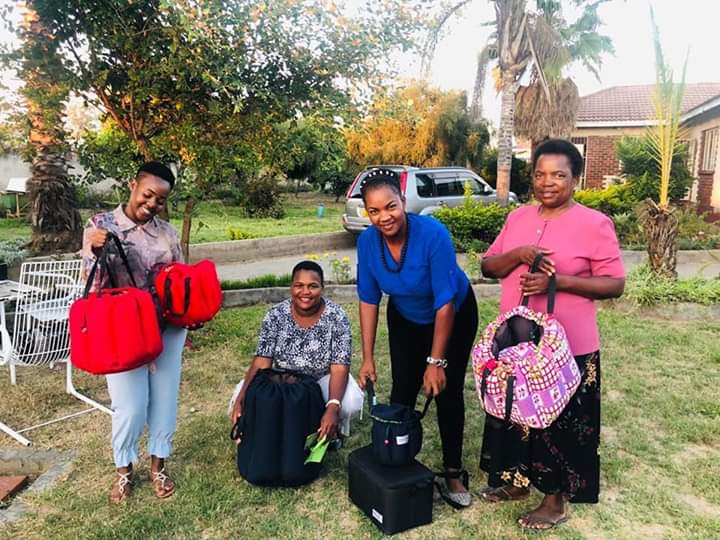
How easy or otherwise is it to work with youths who were once into drugs and also the physically challenged people?
It’s not easy at early stages especially with the youths who were once drug addicts .However, our counseling and medical teams are doing great job which makes it very easy for us to work with them. The outcome has been fantastic, most of these former drug addicts are doing wonders to an extent that you can’t believe they we once into drugs. We help by paying them commission so it pushes them to spend more time at work as a way of earning more money. In the same vein, it is not that easy taking care and empowering the physically challenged because mostly they have conditions that need medical attention every now and then, but our medical team is helping us a lot to make the situation easier for all of us. We give them light work that will not strain their bodies and conditions as a way of giving the hope that they can do it and that disability cannot stop them from earning a living
What are your plans for Africa, do you have the dream of replicating what you are doing in more countries
My plan, if funds permit us is for our innovation to be across Africa and the globe by 2030 so that it will benefit and help many people in the World .We are more than ready to take this innovation anywhere in the World as long as funds permit us










you are doing a great thing in peoples lives as far as it is concerned may the Almighty God provide you with everything you need to make this programme go further